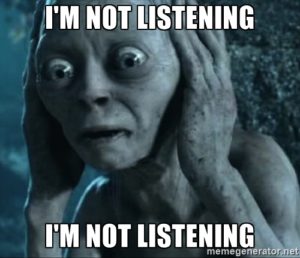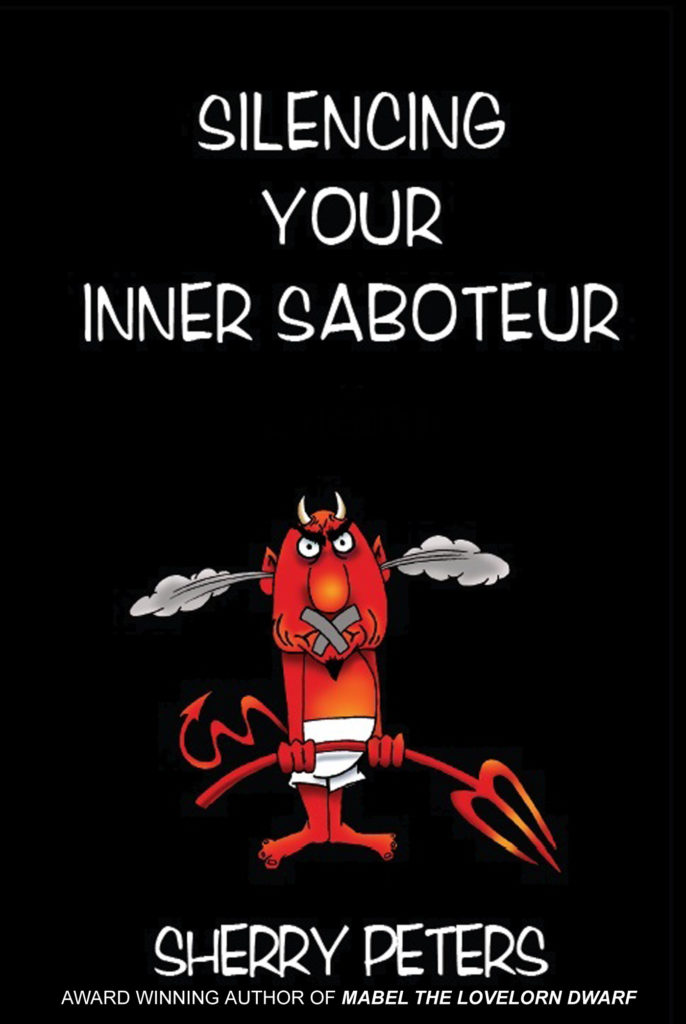“Dear Sherry” is an opportunity to ask for advice on writer’s/creativity block, time management, the process of writing, and more. Sherry Peters is a Certified Life Coach who works with writers at all stages of their writing career looking to increase their productivity through pushing past the self-doubt holding them back. Her fiction has won the Writer’s Digest Self-Published e-book award, and been nominated for the Aurora Award, Canada’s top prize for Speculative fiction. If you could ask a writing coach anything, here is your chance.

Dear Sherry,
Ever since I finished my MFA, I’ve been having trouble getting words on paper.
At first, I had this constant refrain in my head about all the “bad writing” I was doing, and I had trouble getting even a first draft finished.
Then, I started having trouble with my characters and settings and pretty much everything. Nothing made sense and it seemed like my characters were sitting around with nothing better to do than twiddle their thumbs.
Finally, I got to a point where I felt as if I had NO CLUE what a story even is, let alone how to put one together.
I’ve tried everything I can think of — writing at the keyboard with the internet off, writing with pen and paper, talking into an audio recorder.
Nothing seems to work.
Even if I get a snippet of dialogue or action, the words disappear the moment I get to the keyboard, pen and paper, or turn on the recorder.
I recently tried just telling myself not to worry about words on the page and have simply focused on world-building and character building. But even that seems thwarted now. I feel like an alien dropped into the middle of a culture, without benefit of eyes, ears, or other senses.
I’m at a loss. How do I get back to where the words flowed freely?
Thank you.
Feel Like An Alien
***
Dear Feel Like An Alien,
You are not an alien. You are experiencing what most writers experience once they’ve gone through some kind of writing workshop or writing program. Gone are the days when everything you wrote is the best thing ever, because now you know better. And it sucks. You are forever destined to be more critical of everything you read and write.
However, you are not forever doomed.
The kind of internal criticism and censorship is a perfect embodiment of what I like to call your Inner Saboteur.
 Full Disclosure: Lane Robins is the one who first turned me onto the idea of an Inner Saboteur way back in 2008. I’ve also written a book that explores this subject in greater detail, so I’m taking the advice I’m giving you from that book Silencing Your Inner Saboteur.
Full Disclosure: Lane Robins is the one who first turned me onto the idea of an Inner Saboteur way back in 2008. I’ve also written a book that explores this subject in greater detail, so I’m taking the advice I’m giving you from that book Silencing Your Inner Saboteur.
Keep free-writing, turning off the internet, writing long-hand, and recording yourself. When you hear that voice of criticism, what is the line it likes to use most? Is it something like, “you’re not good enough,” or “nobody wants to read that”? What is its favorite form of torment?
Also think about whose voice it most sounds like. Does it sound like your mother? Your MFA professor? Someone in your critique group? What was the one thing that person told you, which hurt you the most? Looking back at that original comment, put it into context. Make it a false statement.
Maybe that person criticized your lack of description, or poor character development, or unoriginal idea. Maybe it was fair of them to make that comment at the time, but haven’t you learned a whole lot more about the writing craft since then? Were they critiquing a first draft? No one should expect perfection from a first, or second, or sometimes even a third draft.
Now, take the comment your Saboteur likes the most, and tell your Saboteur why they’re wrong. Don’t spend too much time doing this. It gets exhausting. Deal with one comment, then put the rest into action, proving the Saboteur they’re wrong by writing.
And while you’re doing that, think about the following: perfection is in the eye of the beholder. What I see a brilliant writing, someone else will see as terrible writing. Go to any book’s review page on Amazon and you will see the vast difference in opinions. Don’t fear editing. Editing isn’t just about getting the grammar correct, it’s about honing the craft, the story, to make it as strong as possible. Every writer edits. Accept that you will continually be growing as a writer. What you write today will not be as good as what you write tomorrow, or the next day, and that’s perfectly OK, because tomorrow, you will know more than you knew today.
Now write!
Creatively yours, Sherry
***
Have a question for Sherry? Send her an e-mail at coachsherry@sherrypeters.com.

No Comments